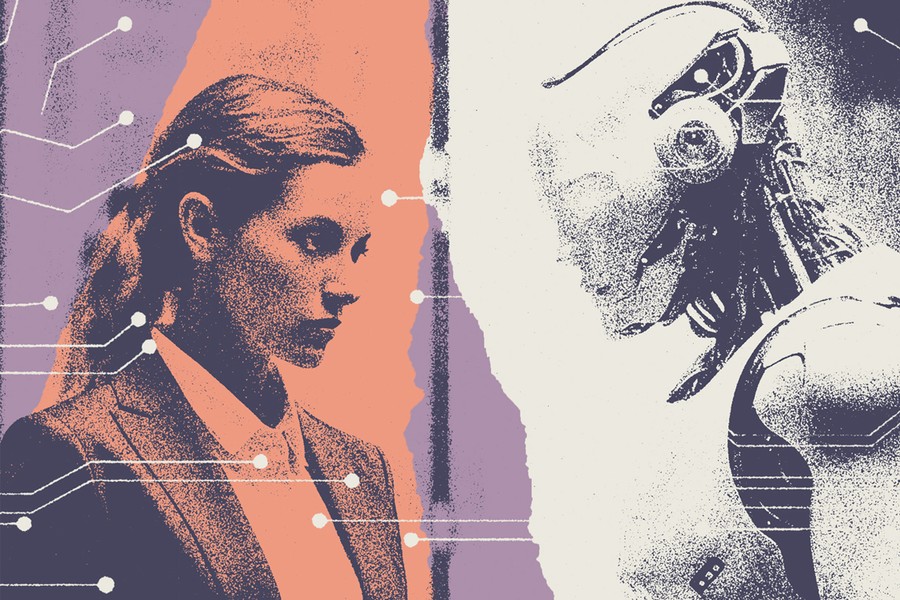It is hard to move for stories about the AI revolution. Every major government is keen to promote technology as key to improving the delivery of public services, of driving efficiency and productivity, and the major data companies often seem to be leading the chorus. Taking up the tune are media reports about ‘robots coming for your jobs’, all amplified by a barrage of advertisements for AI Agents to immediately start doing the heavy lifting in firms. But what is really happening in the world of work, and how are labour markets shifting?
Making the future work
For the past three years, the Institute for the Future of Work (IFOW) has undertaken the Pissarides Review into the Future of Work and Wellbeing, led by Nobel Prize-winning labour market economist, Professor Sir Christopher Pissarides. Workstreams led by researchers with deep expertise have explored the complex picture of the impacts of AI and automation adoption at system, firm and individual levels. This culminated in a Final Report that set out not just a ‘state of the nation’ picture on tech adoption, but a set of research-led principles that emerged from this work that suggest how to get the future ‘right.’
System-level challenges
Work at the system level sought to give the first proper picture of technological transformation across the country. This aggregated data across venture capital flows, levels of research & development investment, numbers of patents, levels of skills – as well as measures of educational attainment and the availability of high-speed internet – to help firms and policymakers understand what the drivers of tech adoption were. This showed that there was fantastic innovation being done – but that it wasn’t spilling over to areas outside of the ‘golden triangle’ of Oxford, Cambridge and the South East nearly as well as it should. There are areas that are highly ‘innovation ready’ but aren’t yet benefiting from new technologies.
Though UK-focused, these principles matter more widely. The government’s recently-published Industrial Strategy rightfully indicates that distributing investment across a country is vital if we are to see the benefits of these extraordinary new technologies shared. Increasing access to good-quality jobs in a region doesn’t just lead to economic benefits; our research at IFOW shows that it supports health outcomes, resilience and community cohesion – all of which are not only good in themselves, but also lower demand for public services in other ways.
Firm-level opportunities
Alongside the great push by governments and tech companies to promote AI technologies, there have also been huge numbers of articles warning of major changes to the labour market due to the impact of AI.
In truth, it is currently difficult to parse the impact that AI is having on job numbers. There are significant other factors in play, such as the continued corrective retrenchment from the large increases in tech hiring during Covid, slowdowns in public sector headcounts across many economies, and the destabilising impact of tariffs. In the UK, we are also seeing the impacts of the government’s fiscal changes, and a slowdown in venture capital funding too.
David Autor, professor of economics at The Massachusetts Institute of Technology, recently commented that “Outside some specific occupations [such as] programmers, I think it’s premature to ascribe recent labour market woes to AI,” and sees changes to government contracts with big consulting firms, cuts by ‘DoGE’, and tariffs as likely having a greater impact.
While it is clear that this new ‘general purpose technology’ will have a significant impact across a wide range of sectors, the danger is that firms believe the hype and respond to a perception environment – making large-scale decisions on AI deployment without careful consideration of the risks and actual benefits. Economists such as Daron Acemoglu and Erik Brynjolffson have warned against this hurried adoption of AI to replace work rather than enhance it, and shown that doing so often fails to bring expected productivity gains, while having very significant wider socio-economic impacts. Others, such as Carl Frey, have made it clear that while “there’s little evidence that AI has already begun taking jobs en masse […] today’s leading service hubs risk underestimating the disruption of AI — especially as Silicon Valley races to automate white-collar work”.
What then should firms do to make sure that they get tech adoption ‘right’? As part of our Pissarides Review, 1000 UK firms were surveyed about their approaches to AI and automation adoption, and twelve in-depth case-studies were carried out across a wide range of sectors (from surgical robots to GenAI transcription to welding co-bots). The consistent findings were that where firms have ‘high engagement HR philosophies’, the adoption of AI and automation technologies led to more good quality jobs, with better skills and better outcomes.
At the centre of all of this labour market turbulence is working people, and those who are in education and thinking about their future of work.
This is a significant finding. If we engage workers in how these AI systems are designed, developed and deployed, then their adoption promotes environments where productivity will increase. Moreover, if this adoption of new technologies is also leading to more access to good work, the wider benefits of healthy people, and resilient communities, we should see a double effect of relieving stress on public services.
Individual capabilities
We know that technological transformation is happening rapidly and we can map the system-level picture of these changes. While the direct impacts of AI are currently difficult to read in terms of changes to labour markets, we do have a good understanding of how firms should be responding by promoting human-centred tech-adoption practices. All technology has a social dimension, so it is vital that HR functions are integrated into discussions about AI deployment, rather than decisions about this sitting just with Chief Technology Officers.
But at the centre of all of this labour market turbulence is working people, and those who are in education and thinking about their future of work. The Pissarides Review analysed tens of millions of job ads from 2016-2022, looking to understand how skills demands are changing. What this found was that demand for tech skills is increasing – but that the flux of these skills is also high. It also found that the demand for human-centric skills such as communication, problem-solving and creative thinking remained constant. Finally, it was clear that the basket of skills being requested for roles has grown.
This points to a nuanced picture. Rather than education shifting focus to competency in specific tech skills – ‘AI literacy’ for example – what matters most for success in a technologising labour market is fostering a culture of capability. This means encouraging young people – and those already in work who will be experiencing work transitions – to develop a positive and capable approach to integrating new technologies and systems into their working practices and lives.
Such an approach requires a shift in emphasis from schools and those responsible for training and development. A Capabilities Approach understands that putting two people through the same training course won’t deliver the same outcomes, because people who come to the training with different resources are able to extract varying levels of value from it.
Advancing innovation and social good
Although the current impact on jobs is still unclear, as AI impacts the world of work and reshapes labour markets, it is vital that we understand the changes in play as both social and technical. The future of wholesale replacement of human labour by AI systems is not backed up by current research, nor offers a vision of a healthy society in which all can flourish. The mantra of ‘growth’ is heard from leaders across economies; what these new technologies are best placed to do is enhance our human capabilities – allowing innovation and social good to advance together.
Kester Brewin
Associate Director at the Institute for the Future of Work
About the author and the Institute for the Future of Work (IFOW)
The Institute for the Future of Work is an independent research and development institute exploring how new technologies are transforming work and society. Co-founded by former employment barrister Anna Thomas MBE, Nobel prize-winning economist Professor Sir Christopher Pissarides and technologist Naomi Climer CBE, IFOW works at the intersections of governance, civil society and industry to build a fairer future of better work. Kester Brewin is Associate Director at the IFOW and author of God-like, a 500-Year History of Artificial Intelligence.
https://ifow.org



